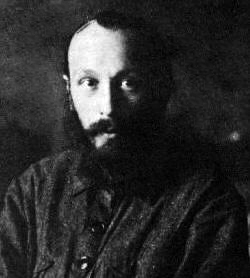The novel has been the aesthetic object of choice for a majority of postcolonial scholars. While postcolonial writers have by no means failed to produce poetry nor have critics in the field entirely neglected verse, it is the novel and studies of the novel that have had the greatest influence in the field. To some degree, this focus on the novel reflects a general shift of attention within literary studies away from poetry towards narrative, but we can further attribute the novel’s predominance in postcolonial studies to three factors: the representational nature of the novel, its heteroglossic structure, and the function of the chronotope in the novel.
The representational power of the novel and its ability to give voice to a people in the assertion of their identity and their history is of primary importance to postcolonial writers and scholars. Poetry, of course, can also serve this purpose, but it is often perceived as culturally and locally specific, whereas the novel is typically understood as more accessible, communal, and public. The genre of the novel creates a world which inevitably represents and reflects the world out of which it comes. A critic might look at the way a novel both contributes to and arises out of a narrative of nationhood or how it does or doesn’t operate in the context of decolonization and resistance efforts. Postcolonial scholars do not limit this interest in representation and identity solely to the novels of postcolonial nations. Edward Said has written on the novels of empire, examining the way they represent the relationship between empire and colony.
Essential to this exploration of the novel as a representational form is an interrogation of the whole question of representation. This concern with representation as such is to be found in many branches of literary studies; in postcolonial studies we might narrow our questions down to three general areas: authorship and origin, genre, and language. (See also Metafiction)
Questions and Issues
Authorship and Origin
Which novels and which novelists speak best for the postcolonial nation? The postcolonial condition? Do we study those novels that reflect a metropolitan experience or those more expressive of a national experience?
Genre
What issues are raised by how a novel represents? What is significant about the novel following the model of the mimetic, linear narrative of realism, presenting a “straight” take on identity and history? What is at stake in the postcolonial novel taking a more postmodern (typically metropolitan or cosmopolitan) route, which emphasizes the postcolonial condition as fractured, heterogeneous, hybrid? (See Mimicry, Ambivalence and Hybridity, and Magical Realism)
Language
Should the postcolonial writer write in English or in the nation’s native language? Should we only study literature written in English (generally metropolitan texts) or should we also consider work in translation? (See Ngugi)
Postcolonial critics examining the ways the newly formed nation speaks its identity have found in the heteroglossic structure of the novel a particularly rewarding object of study. Heteroglossia is a term coined by Mikhail Bakhtin to describe the novel’s organization of socially diverse and competing discourses. Postcolonial studies has given special attention to the many voices present in the novel, sometimes in the service of amplifying those voices that have perhaps not been heard in traditional literary study and, more generally, in the attempt to emphasize the heterogeneous nature of the novel and the nation.

Studies of the novel as chronotope, another term coined by Bakhtin, have perhaps not been as important in the field as those focusing on issues of representation, identity, and heteroglossia, but it is an issue of large importance, especially in the work of more postmodern novelists like Salman Rushdie and critics like Homi Bhabha. Bakhtin defines chronotope as “the intrinsic connectedness of temporal and spatial relationships that are artistically expressed in literature … [it] is the primary means for materializing time in space … a center for concretizing representation” (84). The connection between time and space must be made in order for the narrative to be built upon it, but this connection does not precede the narrative. It is forged in the telling of the story; every narrative must tell itself, must create the conditions for its own existence. This struggle to graft time and space to each other is a task of absolute importance in the building and maintenance of the nation. Like the novel, the nation must narrate itself into being by making connections between indicators of space (often arbitrary borders) and indicators of time (stories, events, episodes, moments). Postcolonial critics study the novel as part of this grafting, as a reflection of it, and as a model of the process of nation-building.
Bibliography
- Bakhtin, M. M. The Dialogic Imagination: Four Essays by M. M. Bakhtin. Ed. Michael Holquist. Trans. Caryl Emerson and Michael Holquist. Austin: U of Texas P, 1981.
Author: James Murphy, Spring 1996
Last edited: October 2017